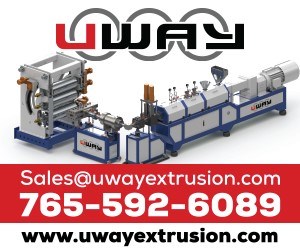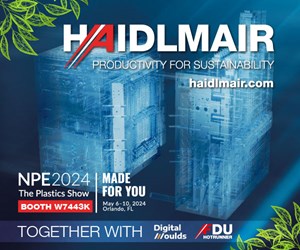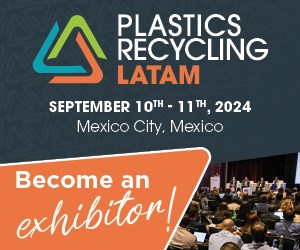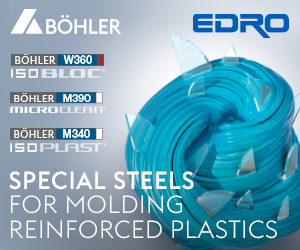PBT Resin Made from Ocean-Bound PET Bottles
SABIC’s new WF0061BiQ is the latest addition to the company’s portfolio of chemically upcycled LNP Elcrin iQ materials.
A novel material that uses that uses ocean-bound PET bottles (within 30 miles of the coast) as a feed stream for chemical upcycling into PBT has been introduced by SABIC. WF0061BiQ resin is the latest addition to SABIC’s extensive portfolio of chemically upcycled LNP Elcrin iQ materials, which help support circularity while serving as potential drop-in replacements for virgin PBT resins.

LNP Elcrin WF0061BiQ resin is a candidate for consumer electronics applications such as fan housings in computers and automotive seating, as well as electrical connectors and enclosures. This is a glass fiber-reinforced PBT compound which features non-brominated, non-chlorinated flame retardancy meeting the UL94 V0 standard at 0.8mm and F1 rating. It reportedly also delivers excellent heat resistance, toughness and stiffness, and high flow well-suited for molding thin-wall applications for outdoor environments such as electrical equipment enclosures.
All LNP Elcrin iQ materials can serve as possible drop-in replacements for conventional PBT to help manufacturers increase the sustainability of end products. SABIC’s proprietary upcycling technology, which involves the repolymerization of ocean-bound PET into PBT, is said to deliver virgin-like performance properties. This process surpasses mechanical recycling in quality and consistency.
In addition to WF0061BiQ resin, the company has introduced many different and innovative grades to the LNP Elcrin iQ portfolio, including glass- and mineral-reinforced products and flame-retardant formulations. For example,
In addition to SABIC’s new WF0061BiQ resin, based on ocean-bound PET bottles, the company has introduced many different and innovative grades to the LNP Elcrin iQ portfolio, including glass- and mineral-reinforced products and flame-retardant formulations. Included are WF006XXPiQ and WF0061XPiQ compounds which incorporate pre-consumer recycled glass fiber diverted from the waste stream of industrial processes. The use of recycled glass fiber further enhances the circularity of these upcycled PBT materials. The diversity of these formulations enables LNP Elcrin iQ resins to be considered for applications beyond electrical and electronics components, such as automotive exterior parts, healthcare applications and personal care products.
According to SABIC, not only is it creating sustainable materials but also regularly formulating new resins and compounds using environmentally responsible and safer chemistries, such as non-brominated/non-chlorinated flame retardants.
Related Content
-
Tracing the History of Polymeric Materials: Acetal
The road from discovery in the lab to commercial viability can be long, and this was certainly the case for acetal polymers.
-
Prices for All Volume Resins Head Down at End of 2023
Flat-to-downward trajectory for at least this month.
-
Scaling Up Sustainable Solutions for Fiber Reinforced Composite Materials
Oak Ridge National Laboratory's Sustainable Manufacturing Technologies Group helps industrial partners tackle the sustainability challenges presented by fiber-reinforced composite materials.






 (2).jpg;maxWidth=300;quality=90)







